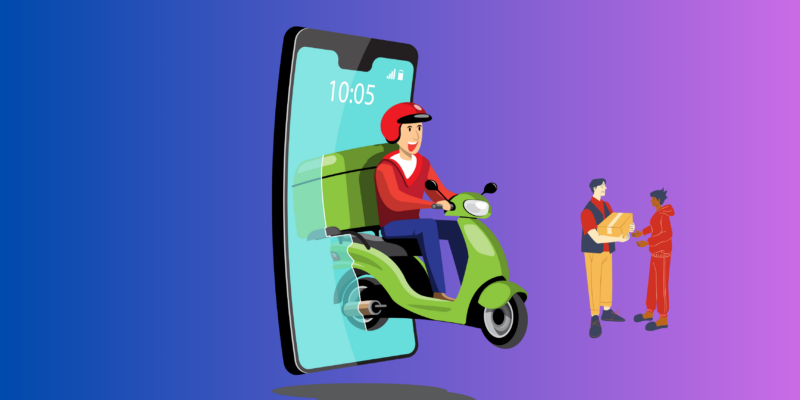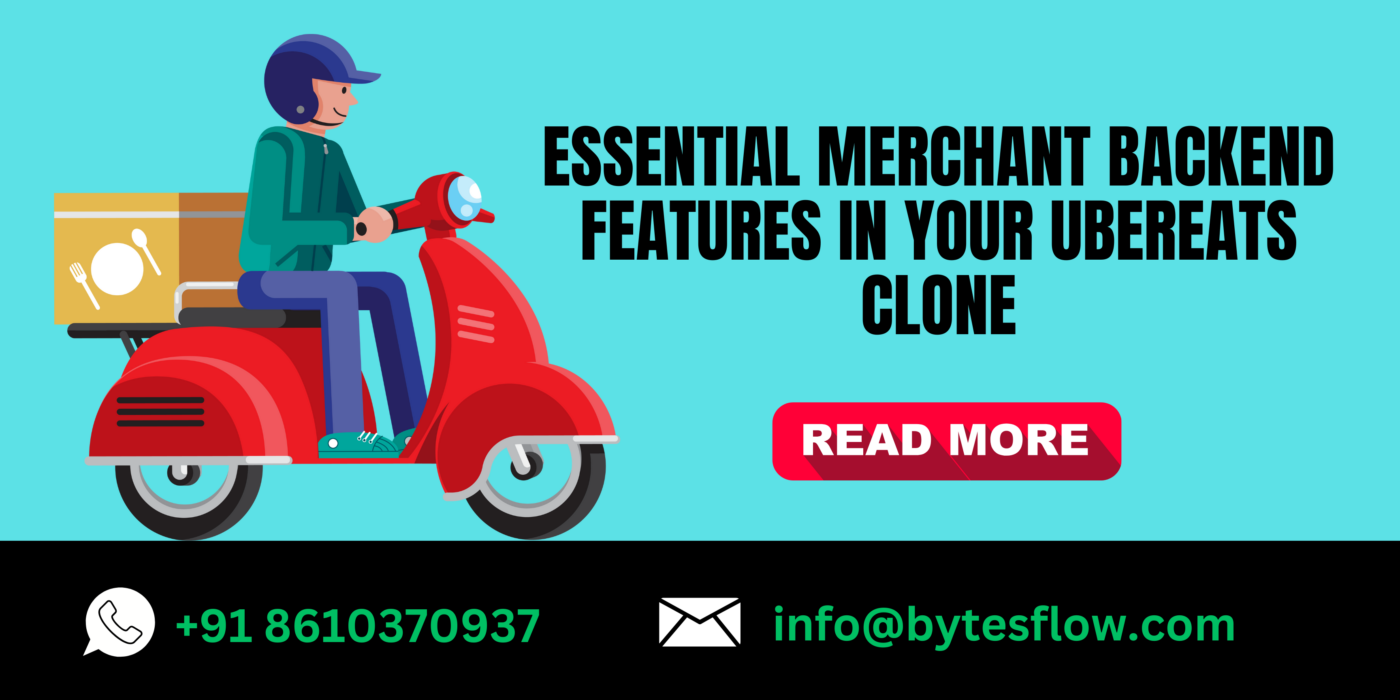When it comes to the world of food delivery, it is a well-known fact that the concept you are implementing to your UberEats clone needs a reliable merchant backend. This merchant panel is the central hub where restaurant owners can operate. And monitor all aspects of their business, from social platforms to orders and clientele. That is the control center where they can oversee their online store and be sure it is running smoothly. Now in our blog, let’s explore the power of merchant backend in your UberEats clone.
The Role of the Merchant Backend in Your UberEats Clone

Menu Management
Menu management is one of the most crucial tasks in the process of the system’s work. With this feature, merchants can conveniently create their menu and also can easily modify or remove certain items from it. They can provide exciting characteristics, choose the correct prices, and offer options for customization. And also upload delightful pictures to encourage people to have their meals.
The use of real-time inventory is another component. This allows merchants to monitor the amount and stock of ingredients. And consequently, update the menu to reflect what is available. This helps to mitigate cases of overselling and guarantees client satisfaction by discouraging instances where one orders a specific dish only to be informed that the dish is out of stock. To this end, merchants can capture customers by offering special offers as a way of debt-encouraging customers. For example, the offer of happy hour prices, offers by bundled products or services, and taking orders at a certain amount of money.
Order Management
Order management is another primary function available in the merchant’s backend interface. It offers a clear outlook of the incoming orders and helps the merchants view the status of the orders. Whether they are in the pending, preparing, or on delivery status besides the estimated time when the orders are to be delivered. It also engulfs them with the ability to coordinate their work plans with expertise.
In addition, the system should enable merchants to accept or reject orders based on the capacity or something during the rush hours of the day. So that the kitchen is not congested with orders and delays experienced when preparing them. Order history such as the customer details for the order, items that were included in the previous order, and the total price of that particular order are very essential. These statistics help the merchants in developing business initiatives, which are more efficient in satisfying the demands of the customers.
Customer Communication
Customers’ satisfaction is a key factor in working with and thus the need to establish good communication with them. Communication between the merchant and customers should be enabled on the merchant dashboard to allow for a follow-up on order details, changes in preferences, or acceptance of alternative products or destinations to be made.
Merchants can also manage reviews. This means they can see the reviews and ratings by the customers and reply if need be. This enables the merchants to oblige and clear any concerns and show a willingness to satisfy their customers.
Reporting and Analytics
Businesses are considering data as the most important capital. The merchant backend of your UberEats clone app should offer a great amount of reporting and analysis as well. This process entails graphs, charts, and performance indicators on sales and peak hours. And also most ordered meals which are vital in decision-making.
This is information that merchants can use to better sort stores and choose those products that will make clients most satisfied and generate additional profits. Likewise, known measures on demographics, ordering behaviors, and preferences enable commercial entities to design more effective marketing campaigns and control their customers’ growth profiles.
Additional Features
There are other features that one can incorporate into your food delivery script that will bring even more value to it. Accepting payments through secure payment modes also enables the merchants to process their orders without any fuss. At the same time helps them in reconcile all the transactions effortlessly. Allowing merchants to choose to manage their own delivery fleet or outsource the delivery service to a third-party company is a plus. Because it allows the merchants to settle for a delivery solution that they prefer most.
Last of all, it is possible to contemplate a certain degree of flexibility in the matter of the merchant’s dashboard. This offers restaurants additional ways of making their experience more customized and their work more efficient.
Security and Scalability
When dealing with any platform, don’t overlook two critical factors: security and scalability. Encrypt and back up all data related to users and orders. It is necessary to build the backend in such a way that it could grow and develop together with the platform and the number of users and orders will increase. Thereby making sure that it will continue to work stably as the business rises to new levels.
Implementing Merchant Backend in Your UberEats Clone
Using the above-mentioned functionalities, the merchant backend of your UberEats clone script will become a vital supplement to the restaurant’s work. This will enable them to provide better customer service hence improving their food delivery chains fitting well in the market. You may also want to include such options as loyalty programs or specific marketing tools to make the proposition for the merchants more valuable. And also secure your UberEats clone’s position as the most effective tool for restaurants in the digital era.
Aparna Babukuttan is a content writer at Bytesflow Technologies who writes with passion and emotions. She has a keen interest in exploring the latest technologies and has years of experience in writing for artificial intelligence and Web3 including blockchain, NFT, metaverse, and cryptocurrency. Beyond Blockchain, Aparna also lends her expertise to crafting captivating narratives for on-demand food delivery businesses.

